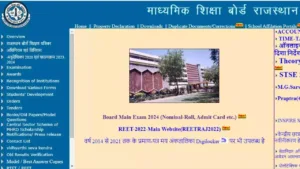Remember that feeling of “range anxiety” the first time you considered an electric vehicle (EV)? Will the battery die before you reach your destination? This concern is a major hurdle for EV adoption in India. But the government is stepping on the gas, so to speak, with a significant investment in a program aimed at revolutionizing battery technology.
The buzzword in the energy storage sector is “Advanced Chemistry Cell (ACC)”. These next-generation batteries offer longer range, faster charging times, and improved safety compared to traditional lithium-ion batteries currently used in EVs. According to a senior official at the Ministry of Heavy Industries, the budget for the National Programme on ACC battery storage has been cranked up by a whopping 600% in recent years!
Why the Big Push for ACC Batteries?
India’s ambitious clean energy goals are a major driver behind this investment. The country aims to significantly reduce its reliance on fossil fuels and transition to a greener future. EVs are a key part of this plan, but without robust battery technology, widespread adoption remains a challenge.
ACC batteries hold the potential to be a game-changer. Imagine zipping around town in your electric scooter without worrying about running out of juice halfway through your errands. Or, picture long-distance travel in EVs becoming a reality, thanks to extended range capabilities. This is the vision the government is working towards with the ACC program.
There’s another crucial aspect to consider – self-reliance. Currently, India relies heavily on imports for lithium-ion batteries. The ACC program aims to establish a robust domestic manufacturing ecosystem for these advanced batteries. This not only reduces dependence on foreign imports but also creates new job opportunities and strengthens India’s position in the global battery technology race.
Building the Battery Ecosystem: From Giga Factories to Green Jobs
The increased budget for the ACC program is a clear signal of the government’s commitment. This investment will be used to set up “giga factories” – massive production facilities capable of churning out large volumes of ACC batteries. Additionally, the program will provide financial incentives to attract private players and foster innovation in the battery technology sector.
The focus isn’t just on manufacturing. The government also recognizes the need for a skilled workforce to operate and maintain these giga factories. Expect to see initiatives aimed at developing training programs and educational courses in battery technology. This will create a pool of skilled professionals ready to support the burgeoning ACC battery industry.
The Road Ahead: Challenges and Opportunities
While the government’s push for ACC batteries is a positive step, challenges remain. Developing this new technology requires significant research and development (R&D) efforts. Collaboration between academia, research institutions, and private companies is crucial to achieve breakthroughs.
Another hurdle is ensuring the responsible sourcing of raw materials needed for ACC battery production. Sustainability throughout the supply chain is essential to ensure the environmental benefits of EVs are not negated by unsustainable mining practices.
Despite the challenges, the potential of ACC batteries is undeniable. This government initiative has the power to transform India’s energy landscape, boost the EV sector, and create a future powered by clean and sustainable technology. So, buckle up – the future of mobility in India is about to get a major charge!














